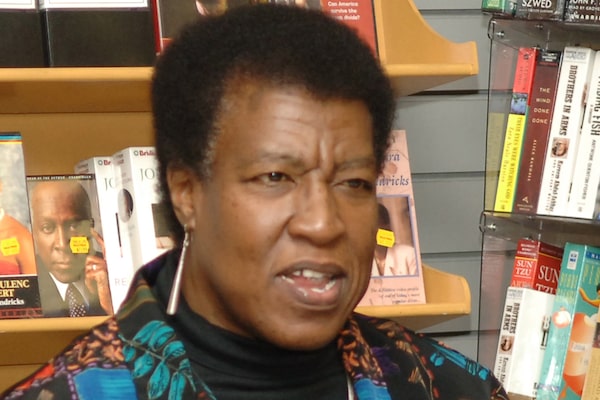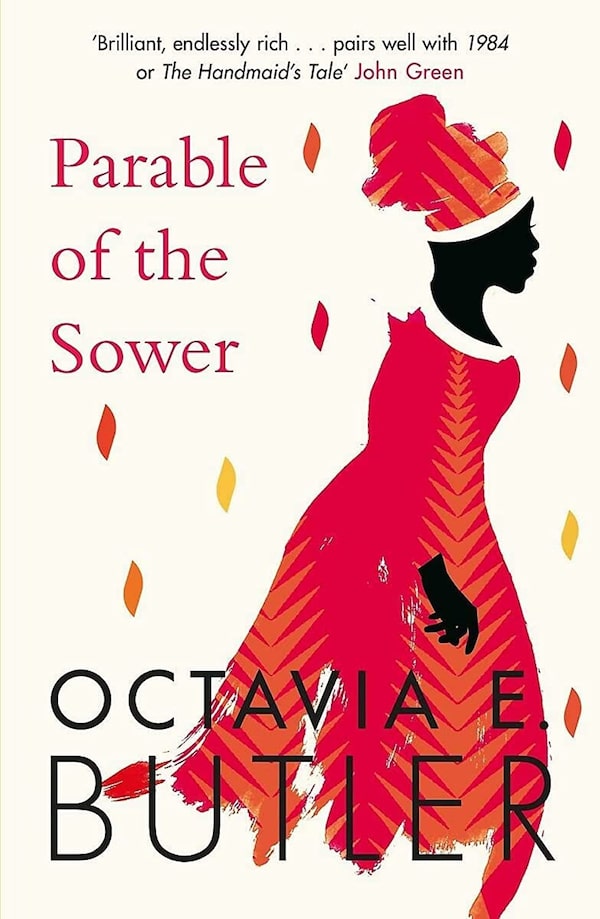
Octavia E. Butler’s died in 2006 but her book, Parable of the Sower, has found a new audience 30 years after first publishing.Malcolm Ali/Getty Images
A few weeks ago, a UFO was sighted on The Globe and Mail’s paperback bestseller list.
This Unexpected Fiction Object was Octavia E. Butler’s Parable of the Sower, and, not unlike a flying saucer streaking across the sky, it came and went from the charts so quickly you couldn’t be entirely sure you really saw it. A piece of speculative fiction first published 30 years ago, by an author who died in 2006? A strange occurrence, to say the least.
But it was not entirely unexpected. In the last few years, Butler – a visionary, groundbreaking science fiction author who published 15 novels and short story collections in her lifetime while overcoming the compounding hurdles of being female and Black in a pale, male genre – has found a new audience for her work, thanks in part to the eerie prescience of her writing (more on that soon) and a string of television adaptations, including Kindred, which premiered on FX in December, and Fledgling, in the works at HBO and executive produced by Issa Rae.
“Butler was ahead of her time, in many ways,” says Ibi Zoboi, a best-selling author of young adult fiction who wrote a biography of Butler’s girlhood for children called Star Child: A Biographical Constellation of Octavia Estelle Butler. “And when you’re ahead of your time, it takes a while for people to catch onto what you’re saying.”
Despite winning a MacArthur Fellowship and several other prestigious literary honours – including multiple Hugos and Nebulas, science fiction’s most-prized gongs – Butler was not a best-selling author in her lifetime. Not for a lack of manifesting, however: She famously wrote in her journal, “I write bestselling novels. My novels go onto the bestseller lists on or shortly after publication.” She sealed this impassioned bit of speaking-something-into-being with a phrase, underlined and repeated twice, that feels part incantation and part plea to the universe: “So be it. See to it.”
It would take more than 50 years, but Butler did become a best-selling author, first hitting The New York Times bestseller list in 2020 with Parable of the Sower. (And that’s four years after the 2016 election, which her 1998 Parable of the Talents spookily seemed to predict, right down to the election of a populist president whose slogan was – I kid you not – “Make America Great Again.”)
While she wasn’t a “sage or a shaman,” Zoboi says, Butler was a deep thinker who watched current events closely, using critical analysis and imagination to translate what she was seeing into stories that were somehow fantastical and utterly plausible at the same time. She observed, studying the world with a scientist’s eye, says Zoboi.

Handout
The Globe spoke to Zoboi about Butler’s enduring legacy, the best of her books to start with and what she was like outside of her writing.
Butler was a mentor to you, and you were able to spend some time with her. What was she like?
I knew her [when I was] coming out of college. I thought I was radicalized, and I was just discovering feminism and racial politics. I was all about dismantling white supremacy and the patriarchy. However, when I met her she was not as political as I thought she would be. She was not as race conscious as I thought she would be. She was more concerned about what humans hold with our need for dominance. She always said that human beings are hierarchical. Even if we dismantle one thing, something else is going to come in its place to assert dominance over another people. This is why she wrote what she wrote. If it’s not humans, it’s aliens. We won’t always be the colonizers in a cosmic sense, and that’s the idea that she examines in many of her books.
If someone’s new to the Butler canon, where should they start?
If you’re new to speculative fiction, I’d say start with Kindred [about a young Black woman sent back in time to a pre-Civil War plantation] or the “Patternist” series, which starts with Wild Seed [about two immortal beings drawn to each other across time and space].
Is there a Butler deep cut that you love? Perhaps one that only the “real” fans know?
Those who have read Dawn are true Butler fans. It’s her first examination of, ‘If we don’t get ourselves together, humans will destroy the planet and ourselves.’ It’s the idea that women would save [the world]. The first edition of the book has a white woman on the cover, not a black woman [although in Octavia’s imagination it is a Black woman]. So, many of her fans and readers did not know she was a Black woman for quite some time. This was before the internet, of course. I have that first edition with a white woman on the cover, and it’s something precious. Fans will know that cover.
There can be some resistance to reading this genre. Do you think Butler is a good option for people who might say they’re not a science fiction person?
Absolutely, especially Parable of the Sower. There’s no science in there. People have the wrong idea about how science works to project into the future, and how it can be social science too. The Parable series are a social science commentary. The short story Bloodchild is a commentary on biology. Science fiction is not all space ships and tech. It’s all the sciences, and asking “what if” in your imagination and in your story.
What do you think Butler’s ultimate legacy is?
Her legacy is how to be a thinker and an artist at the same time, and how to be audacious in breaking new ground. The power of imagination and dogged determination – that’s her legacy.
Expand your mind and build your reading list with the Books newsletter. Sign up today.